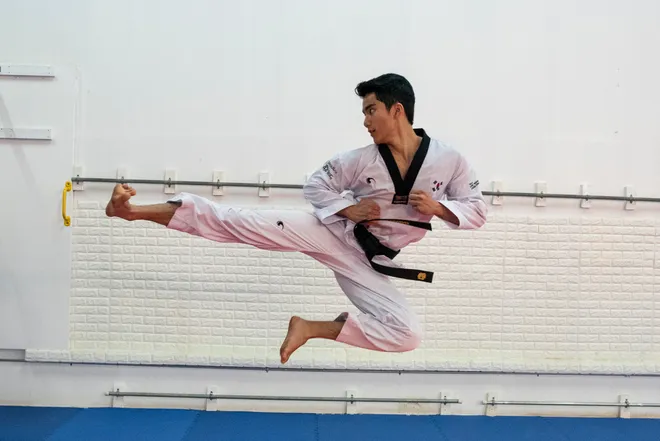In a remarkable blend of ancient tradition and modern spectacle, a Chinese martial artist has captured global attention by preparing for an international slap-fighting tournament using a 2,000-year-old combat style. The unusual training method has gone viral, sparking conversations across martial arts communities and social media platforms worldwide.
The 32-year-old competitor, Zhang Wei, hails from Henan province—a region historically revered as a cradle of Chinese martial arts. Instead of adopting conventional strength training or endurance routines, Zhang has turned to Shuai Jiao, a traditional Chinese wrestling style believed to date back to the Han Dynasty. Though typically used in grappling, Zhang claims its emphasis on explosive power and stability has dramatically enhanced his performance in slap fighting, a sport known for its intense physicality and brutal face-to-face confrontations.
“I am not just fighting to win,” Zhang told a local news outlet. “I am representing centuries of martial wisdom in a modern arena. My ancestors didn’t train for sports—they trained for survival.”
The Rise of Slap Fighting in China
Once considered a fringe spectacle, slap-fighting tournaments have surged in popularity over the past two years, with viral videos drawing millions of views and major sponsors entering the scene. The format typically pits two contestants against each other in a no-defense, open-hand striking duel where power, endurance, and mental fortitude are key.
Zhang’s decision to blend ancient training with a modern format reflects a growing trend in China, where traditional martial arts are being reimagined to fit contemporary competitive sports. While critics argue that slap fighting lacks the discipline and respect inherent in classic martial arts, Zhang believes otherwise.
“People think slap fighting is mindless, but it requires timing, body control, and inner strength,” he said. “These are exactly the qualities taught in traditional Chinese martial arts.”
Martial Arts Community Responds
Zhang’s unique preparation has reignited interest in preserving traditional Chinese combat styles like Wushu, Tai Chi, and Shuai Jiao, especially among younger generations. Several martial arts academies in Beijing and Shanghai have reported increased inquiries about cross-training for modern combat sports using ancient techniques.
Experts in martial arts history have praised Zhang’s approach for honoring cultural heritage while adapting to evolving sports entertainment.
“It’s rare to see someone bridge two completely different worlds so seamlessly,” said Dr. Mei Lin, a professor of East Asian martial traditions at Peking University. “This is not just about fighting—it’s about cultural continuity.”
Looking Ahead
As the tournament approaches, all eyes are on Zhang. He will face opponents trained in modern disciplines like boxing and mixed martial arts, but remains confident that his unique preparation will set him apart.
“The strength of tradition is not in its age, but in its adaptability,” he said.
Whether or not Zhang wins the title, his journey has already made a significant impact—sparking global interest in ancient Chinese fighting techniques and their relevance in modern sport. His story serves as a reminder that even in the age of viral trends and digital fame, centuries-old traditions still hold power.



